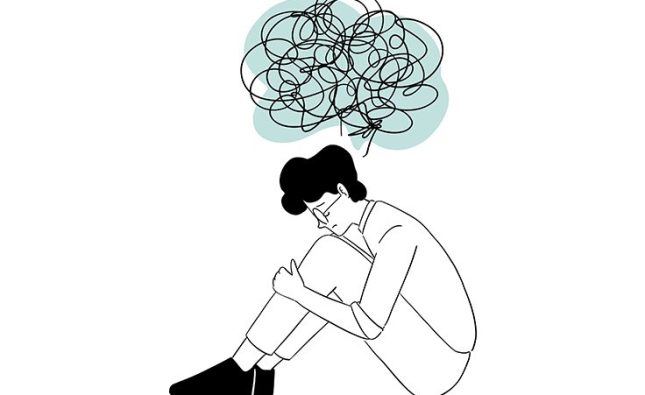
In today’s fast-paced world, stress has become a common concern for many men. However, mastering stress management techniques is crucial for maintaining mental and emotional well-being, especially in relationships. In this article, we delve into effective strategies for men to overcome stress and navigate challenges with confidence.
Understanding Male Stress
Male stress manifests differently compared to women, often characterized by stoicism and internalization of emotions. Despite societal expectations, men experience stress in various aspects of life, including work, relationships, and personal responsibilities. Understanding the unique challenges men face is essential for addressing male anxiety effectively.
Recognizing Signs of Stress in Men
Identifying signs of stress in men is vital for early intervention and support. Common indicators include irritability, withdrawal, changes in sleep patterns, and physical symptoms such as headaches or muscle tension. By recognizing these signs, men can take proactive steps to manage stress and prevent it from escalating.

Exploring Stress Management Techniques
Effective stress management techniques empower men to cope with stressors and build resilience. Incorporating relaxation techniques such as deep breathing exercises, meditation, and mindfulness can help reduce anxiety levels and promote a sense of calm. Engaging in physical activity, maintaining a healthy lifestyle, and prioritizing self-care activities are also essential for managing stress effectively.
Improving Communication in Relationships
Communication plays a crucial role in managing stress in relationships. Men can benefit from expressing their feelings and concerns openly with their partners, fostering emotional connection and support. Effective communication allows couples to address issues collaboratively, reducing tension and enhancing relationship satisfaction.
Seeking Professional Support
Sometimes, managing stress may require professional assistance. Men should feel comfortable seeking support from mental health professionals, counselors, or support groups to address underlying issues and develop coping strategies. Seeking help is a sign of strength and proactive self-care, allowing men to prioritize their mental health and well-being.
Nurturing Social Connections
Maintaining strong social connections is essential for combating stress and promoting overall well-being. Spending time with friends, family, and loved ones provides emotional support and a sense of belonging. Engaging in meaningful activities and hobbies with others can help reduce feelings of isolation and loneliness, contributing to improved mental health.
Setting Boundaries and Priorities
Learning to set boundaries and prioritize responsibilities is crucial for managing stress effectively. Men should identify their limits and communicate them assertively, avoiding overcommitment and burnout. Prioritizing tasks and activities based on importance and urgency can help men allocate their time and energy more efficiently, reducing stress levels.
Practicing Self-Compassion
Self-compassion is essential for men to navigate stress and adversity with resilience and kindness towards themselves. Embracing imperfections, practicing self-acceptance, and reframing negative self-talk are integral components of self-compassion. By treating themselves with compassion and understanding, men can cultivate a positive and nurturing relationship with themselves.

FAQs
How does stress affect men differently than women?
- Stress affects men differently than women due to societal expectations and gender norms. Men often internalize their stress and may exhibit symptoms such as irritability, withdrawal, or physical discomfort. Understanding these differences is crucial for effectively addressing male stress and promoting well-being.
What are some common signs of stress in men?
- Common signs of stress in men include irritability, withdrawal, changes in sleep patterns, physical symptoms like headaches or muscle tension, and increased risk-taking behaviors. Recognizing these signs early allows men to implement effective stress management techniques and seek support when needed.
How can men improve communication in relationships to reduce stress?
- Men can improve communication in relationships by actively listening to their partners, expressing their feelings and concerns openly, and being empathetic and understanding. Effective communication fosters emotional connection and support, reducing tension and stress in the relationship.
When should men seek professional support for managing stress?
- Men should seek professional support for managing stress when their symptoms interfere with daily functioning, relationships, or overall well-being. Mental health professionals, counselors, or support groups can provide valuable guidance and strategies for coping with stress effectively.
What role do social connections play in managing stress for men?
- Social connections play a crucial role in managing stress for men by providing emotional support, a sense of belonging, and opportunities for relaxation and enjoyment. Spending time with friends, family, and loved ones helps reduce feelings of isolation and loneliness, promoting mental health and resilience.
How can setting boundaries and priorities help men manage stress effectively?
- Setting boundaries and priorities helps men manage stress effectively by preventing overcommitment, reducing feelings of overwhelm, and promoting work-life balance. By identifying their limits and communicating them assertively, men can allocate their time and energy more efficiently, leading to reduced stress levels and improved well-being.
Conclusion
Mastering stress management techniques is vital for men to thrive in relationships and maintain overall well-being. By understanding male stress, recognizing signs of stress, and implementing effective coping strategies, men can overcome anxiety and build resilience in the face of life’s challenges. Prioritizing self-care, seeking support when needed, and nurturing social connections are essential steps towards achieving a balanced and fulfilling life.










